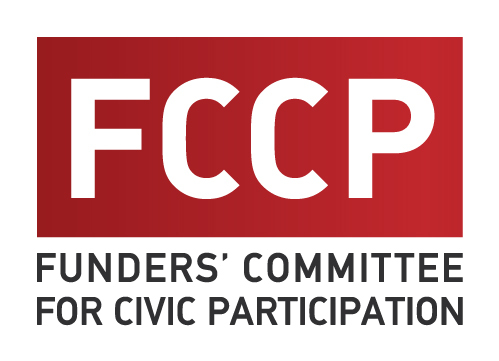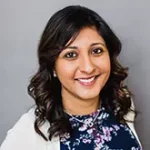
At RISE Together Fund’s civic engagement funder briefing on October 19, the RTF team shared details of our voter data pilot program and highlighted our nonpartisan civic engagement grantees and field partners, Georgia Muslim Voter Project, North Carolina Asian Americans Together, and ProGeorgia.
Our panelists demonstrate the power and potential of Black, African, Arab, Middle Easters, Muslim, and South Asian (BAMEMSA)* communities to impact elections. You can access the full recording of the session here.
Here are four key findings that emerged from that briefing:

Dr. Tom Wong, RTF’s lead nonpartisan civic engagement researcher and trainer, noted that preeminent data vendors do not currently have reliable lists of BAMEMSA voters. In 2020, RISE Together Fund worked to solve this problem by hiring Dr. Wong to create better more targeted voter lists for its grassroots grantees by creating an algorithm to cull mainstream ancestry databases to better determine the ethnicity, race, and national origin of potential voters.

Shafina Kabani of Georgia Muslim Voter Project noted that historically in Georgia, data on Muslim communities has been very hard to access. Over the years, this has led GAMVP to operate on assumptions about who our communities are based on surnames, which resulted in false negatives and positives. After working with Dr. Wong, GAMVP’s existing list of 800 potential Muslim voters in Georgia grew to 74,000. This new data set forced GAMVP to think in new ways, including how to shift strategies to better reach the significant Black Muslim population in Georgia.

Chavi Koneru of North Carolina Asian Americans Together noted that stronger data helps ensure communities are not painted with a broad brush. Stronger data that disaggregates the many different BAMEMSA communities in North Carolina can help illustrate true poverty statistics and help show critical service gaps around access to health care or education. Stronger data can also help with engaging BAMEMSA communities in redistricting efforts, and can show that BAMEMSA communities are communities of interest in the critical redistricting process.

Tamieka Atkins of ProGeorgia pointed out that year over year, the nuts and bolts labor of nonpartisan voter engagement is led by grassroots organizations who are connected to their communities. Local leaders are not viewing voter engagement as a transactional relationship, but they are thinking long term for their communities. There is no match for empowering the capacity of local leaders and groups like NCAAT and GAMVP.
*BAMEMSA is an acronym for Black, Arab, Middle Eastern, Muslim, and South Asian to describe communities we support that have been acutely impacted by post 9/11 discrimination. While Arab Middle Eastern Muslim South Asian (AMEMSA) is a common term in philanthropy, because Black communities are often excluded in both community and philanthropic spaces, we felt it was important to be explicit about our commitment to fund Black leadership.
Photo provided by the Tennessee Immigrant and Refugee Rights Coalition